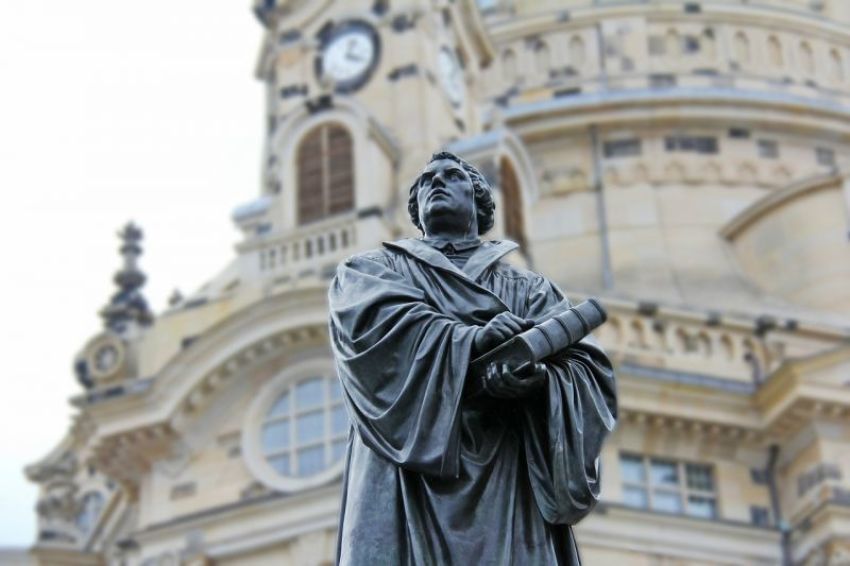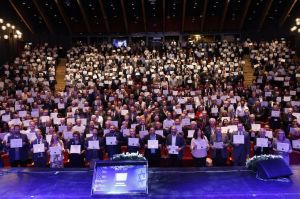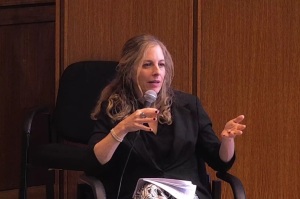How the Reformation Contributed to Liberal Learning

The 500th anniversary of the Protestant Reformation is upon us, and with it a veritable host of narratives both illuminating and misleading as to its causes and effects.
One of those effects is sometimes thought to be a downgrading of the importance of liberal education, intellectual tradition, and the Western heritage of philosophical inquiry into the natural order via the use of reason. Supposedly, the Reformation brought about a surge of irrationalism and blind faith in a God who only made himself manifest through special revelation, and whose creation would therefore be an utterly unintelligible mystery absent such a deliverance from on high.
Such a narrative is particularly pervasive among those who find "modernity" problematic, seeing the Reformation and all that came after it as a sucking chest wound in the (supposedly) formerly sound body of philosophical reflection, leading ultimately to the death of the intelligible world and its replacement by a fideistic ghost. But even a cursory perusal of sources from the sixteenth and seventeenth centuries shows that this narrative is, to use a term of art, wrong.
Sachiko Kusukawa's collection of Philip Melanchthon's orations on philosophy and education makes it clear how wrong this narrative is. Melanchthon (1497-1560), Martin Luther's right-hand man and the first Protestant systematizer, was also deeply involved in curricular reform in Wittenberg, synthesizing the gains of Renaissance humanism with what was valuable in medieval education to create a pedagogical model that was influential all over Europe and outlived him by several centuries.
Melanchthon's writings were voluminous, ranging from biblical commentaries and works of theology to works of natural philosophy, handbooks of dialectic and rhetoric, and editions and commentaries on classical authors. Kusukawa's volume gives the reader a good sense of just how varied Melanchthon's many interests were, as it includes works such as his "Preface to Homer," a "Preface to Cicero's On Duties" (he has more than one), and his "Praise of Eloquence," as well as a commendation on the study of ancient languages (a centerpiece of Reformation humanism) and introductory remarks on arithmetic and geometry.
Particularly valuable for those who misunderstand the genealogy of modernity is a brief set of theses for disputation delivered in 1527 called "On the Distinction between the Gospel and Philosophy," a work originating from his reflection on Colossians 2:8 ("See to it that no one makes a prey of you by philosophy"). Here, Melanchthon notes, the Apostle Paul "does not reject philosophy but its abuse." And how is it abused? By conflating it with the Gospel. "For it is easy," Melanchthon says, "for cunning men to transform the Gospel, by skilful explanation, into philosophy, that is, the teaching of human reason."
But the Gospel is not "the teaching of human reason," because, for Melanchthon, human reason could never have deduced the Gospel by reflecting on the natural world. Melanchthon's point can be clarified when we see how he defines "the Gospel": "The Gospel is not a philosophy or a law, but it is the forgiveness of sins and the promise of reconciliation and eternal life for the sake of Christ." It must be revealed by God, and so "human reason by itself cannot apprehend any of these things."
In other words, Melanchthon does not object to the use of philosophy in its proper place – he simply urges the distinction between it and God's reconciling message in Christ. If that distinction is understood and maintained, the field of philosophy and the humanities lies before one ripe for harvest. Indeed, far from denigrating the pursuit of classical learning, Melanchthon calls philosophy, under which he groups "the art of rhetoric, physiology and precepts on civic morals," a "good creation of God, and the principal among all natural gifts."
But that is not all. For Melanchthon, it is not the case that philosophy – reflection on men's life together in civil society – is optional; it is actually required: "[I]t is a thing that is necessary in this corporal and civic life, such as food, drink, or such as public laws ...". Mark that: it is as necessary as the very means by which we stay alive and live as human beings rather than beasts.
But that is still not all. More than being good, more than being necessary, Melanchthon goes so far as to say that "[m]oral philosophy is the very law of God on civic morals," because it "teach[es] ... the divine order." Moreover, "to the extent that it has demonstrations," philosophy "is the law of nature itself."
At least three aspects of the foregoing stand out for comment: the characteristically Reformational emphasis on the integrity of the Gospel against any dilution or adulteration from alien sources; the simultaneous exaltation of the importance of philosophy and liberal learning when kept within their proper sphere; and the integration of both of these as good creations of God that serve different but complementary purposes.
Five hundred years downstream, these lessons still have great value. The simple act of distinguishing between two different works of God does not devalue either of them, and the recognition of the goodness of liberal learning does not require that it be transformed into the doctrine of man's eternal salvation. Making such a distinction does not downgrade what is natural or what pertains to creation and man's "corporal and civic life." Rather, it is a sign of intellectual rigor and consistency to refrain from confusing these two distinct realms, and a sign of a posture of gratitude to give thanks to God for them both.
In an age in which it is often difficult to see how we might integrate the various facets of our lives into a coherent whole without running roughshod over the differences that are built into creation, Melanchthon, long hailed as Praeceptor Germaniae ("The Teacher of Germany"), still has much to teach us.



























